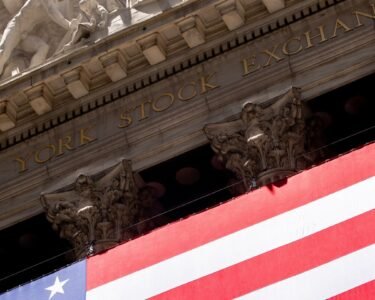The past month has seen escalating geopolitical tensions as the US has launched strikes on Iran. This is in addition to ongoing wars in Gaza and Ukraine.
The instability created by tariffs is not yet at an end, with the pause on reciprocal tariffs due to end on July 8. Yet stock markets have glided gently higher over the same period, apparently indifferent to the turmoil around them.
John Chatfeild-Roberts, manager of the Jupiter Merlin Growth fund, sums it up: “With the exception of a moderate reaction in oil and gas prices, the proverbial little green man landing from Mars, looking with no prior knowledge at most of the other barometers of investor sentiment, would be hard pressed to realise that anything of substance had changed since Friday June 13.” [when Israel began to bomb Iran]
He points out equity indices and bond yields have shown little reaction, while the dollar has hardly budged.
The prospect of turmoil in the Middle East and disruption in oil supplies — Iran is the third-largest oil producer in OPEC — would normally prompt a flight to safe-haven assets: “Typically selling equities, buying US and German government bonds and weighty currencies such as the US dollar.
“Going back five months, markets were much more exercised about Trump’s trade tariff chaos than they are today about the febrile physical situation engulfing the Middle East,” he adds.
Why has the reaction been so muted? Is it a collective delusion — in which case, a nasty market sell-off may be just around the corner? Or are there rational reasons markets are staying calm?
For example, it may be markets are assuming — not unreasonably — a diplomatic solution will be found. This would see the situation de-escalate with little economic impact.
This appears to be what is happening at the moment: Iran does not have a lot of cards. While it could disrupt oil supplies, it could only do so at huge cost to its domestic economy, so strong retaliation seems unlikely in the short term.
Markets may have concluded the world has abundant oil stocks anyway. Chatfeild-Roberts suggests another reason: “Do nothing until there is a need to do something. TBD: To Be Decided; Too Bleeding Difficult; it falls into both versions of the acronym.”
However, even if the geopolitical crises may have little economic impact, more tangible metrics, such as corporate earnings, have been wobbly.
FactSet reports expected year on year earnings of 5 per cent for the S&P 500 in the second quarter. This is down from estimates of 9.3 per cent at the end of March and mark the lowest earnings growth reported by the index since Q4 2023.
Some bellwether companies such as Nvidia have held up well but there are still concerns about the impact of tariffs on key US companies such as Apple and Tesla.
Markets have not responded significantly to the escalation of geopolitical tensions — there may be relatively few economic implications from attacks on Iran or any retaliation.
David Coombs, manager of the Rathbone Strategic Growth Portfolio, says: “Around [the day US President Donald Trump dubbed] ‘liberation day’, we raised our US exposure at the expense of Europe. We added to high-quality US companies that had fallen too far.
“There was a lot of emotion and we felt the mainstream media was underestimating the power of the constitution and of corporate America.”
His view was US exceptionalism came from the capitalism embedded in its culture, its technological prowess and its lack of regulation. “Would that end because Trump played around with tariffs? Tariffs are bad news, certainly, but to call the end of US exceptionalism was a leap.”
It is also worth noting not everywhere has optimism built in — the UK has been doing better, but only because it has been awful and the recent strength has been justified by the earnings profile of UK companies.
As Chris St John, manager of the Axa Framlington UK Mid Cap fund, points out: “The mid-cap index is seeing earnings per share growth expectations exceeding its large-cap peers at a level not seen in four years”.
While there is plenty to be worried about — tariff uncertainty, the increasing cost burden on UK businesses, plus persistent inflation — there is no obvious surfeit of optimism in the UK market.
This is true for many markets outside the US.

Investors should be ‘wary of rising risks’ in global markets
Alec Cutler, manager of the Orbis Global Balanced fund, believes the US is “really very expensive”, but, “the whole rest of the world looks very reasonably priced and there is lots of opportunity there.
“These are economies and countries that have been through more difficult times and have little up arrows. The US is 67 per cent of the global market, and only 25 per cent of the global GDP. The US percentage of global GDP is 18 per cent to 25 per cent. Europe is 22 per cent, with the same population as the US.”
In contrast to the US’s wartime levels of debt that leave little room for stimulus, countries such as Germany, he believes, have plenty of fiscal room to boost their domestic industrial sectors and support their economies. He is significantly underweight the US, and overweight almost everywhere else.
Markets have not responded significantly to the escalation of geopolitical tensions. This is not as irrational as it seems — there may be relatively few economic implications from attacks on Iran or any retaliation.
Equally, there is little sign of any irrational exuberance in stock markets outside the US, with valuations still realistic and a tailwind of fiscal stimulus. However, the lingering question of whether the US is overvalued remains and there are fund managers on both sides of the debate.
Darius McDermott is managing director of Chelsea Financial Services and FundCalibre.











